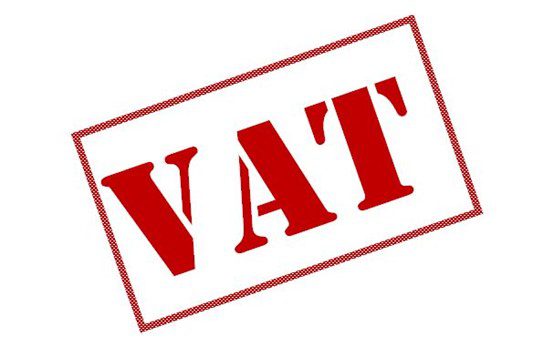IIT Law updates for 2019 issued by China’s State Administration of Taxation
On December 21, 2018, the State Administration of Taxation in China released multiple notices on their website regarding the freshly revised IIT law.
Aside from assuring the public, that the new IIT law will come into full effect from January 1, 2019, these notices provided an overview for some of the updates concerning the IIT law.
The documents covered here are announcements 59 and 61. These are concerning the taxpayer’s identification number, changes in withholding of tax for residents and non-residents, based on their salaries and other income sources.
Read more about the changes in China’s IIT Law: China’s IIT Special Itemized Deductions for 2019 announced
Tax ID Number
Announcement no. 59 highlights the usage of taxpayer identification number when handling all tax-related matters. An individual must provide their tax ID number either to the tax authority or to the withholding agent upon:
- Handling tax returns.
- Paying tax.
- Applying for tax refund.
- Requesting for a certificate of paying tax.
- Tax inquiries and more.
The unique tax-payer code is different for Chinese citizens and foreign employees in China, namely
- Chinese citizens: the tax ID number is the same as their Chinese citizenship ID number.
- Foreign employees: the tax authorities will assign a randomly generated tax ID number upon the foreigner’s first-time handling of any tax-related matters.
In case of foreigners, their passport number had been previously used as their tax ID number. However, the passport numbers would often change upon passport renewal. Hence a foreign individual might have had multiple tax ID numbers, which brought upon multiple issues. In order to avoid such situations in the future, a personal tax ID number will now be assigned to each foreign worker.
Withholding of Individual Income Tax (Announcement no. 61)
The withholding agent (in most cases, the employer) is responsible for paying taxes. For tax residents, tax will be assessed by the cumulative withholding method. This means that the amount of tax will be based on the annual salary figure. However, it will be paid on a monthly basis.
The effect of this change means that the withholding tax at the end of the tax year is basically equal to their annual tax payable. Consequently, this will make it easier for most taxpayers with only one source of income to file their taxes and settlements by themselves.
First-time tax Payments
According to the administrative measures, upon first time payment of the income, the withholding agent must fill in the “Basic Information Form for Individual Income Tax”. The information on the form must include the taxpayer’s identification number (will be assigned by tax authorities) and the amount of tax deduction from the income. The form must then be submitted to the tax authorities. Any changes in already reported information must be reported by the withholding agent to the tax authorities timely before the next months’ tax deduction has been made.
As for non-residents, while they must also pay tax from their comprehensive income, they only need to declare tax once a year, as per the agreement between the employer and the employee.
Refusal to Pay Tax
The withholding agent is obliged by law to withhold and pay taxes and the taxpayer may not resist. If a taxpayer does refuses to do so, the withholding agent must report this negligence to the tax authorities.
Pre-deduction payment of comprehensive income of residents
While withholding tax for salaries and wages of residents will be calculated according to the standard cumulative withholding method, as we covered here, comprehensive income is treated differently.
For residents, tax on comprehensive income, e.g. service fees, author remuneration or royalties, shall be calculated on the basis of the balance of income after deducting expenses from each payment. The tax can be paid either on transactional or on a monthly basis.
For non-residents, the taxable income on comprehensive income will be the balance after deducting 20% of expenses. Payments will be made either on a monthly or a transactional basis by the 15th day of the month, while annual returns are not required.
Final settlements
With the new cumulative withholding method, the difference between the amount of tax paid in advance and the annual tax payable will likely be relatively small.
The annual amount of tax paid shall be revised once per year. In case of any inconsistencies in the tax actually paid and the tax owned, corrections must be made. If there is an amount missing, the taxpayer must pay the missing amount. Alternatively, the taxpayer can apply for an annual settlement if paid too much. The application can be submitted within the period of March 1 to June 30 of the net year. The application must be submitted to relevant tax authorities and if too much tax was paid, the surplus amount will be refunded.
Common Pitfalls
In consideration with announcement no. 61, which stipulates that the withholding agent and the taxpayer both bear the responsibility to notify and request for modifications on regarding the tax-information to reflect their true situation.
A common mistake is to have foreign employees who receive salaries or wages both from their country of origin and China, but the withholding agent only reports and pays taxes from domestic income. However, if the employee is employed in a Chinese enterprise, the overseas income is also subject to Chinese IIT.
Implications of the Announcement
The most recent announcement regarding the IIT Law from the SAT aims to provide more clarity in the deduction of various types of taxable income. The announcement also sets further defines the responsibilities and obligations of both the taxpayer and the employer/withholding agent.
Important takeaways:
- Individuals, who have received comprehensive income within a year, can claim special deductions from those incomes once a year. This can be done during the annual settlement time.
- Foreign expats, including employees from Hong Kong, Taiwan and Macao, who are working in China for a shorter period, must make sure whether they classify as tax residents in China or not. The tax residency status must be communicated to the tax withholding agent in a timely manner, for all parties to be able to properly fulfill their tax obligations.
- Announcement 61 defines the liabilities of the withholding agent. According to this, the withholding agent must provide the relevant tax information also to the taxpayer, including their personal income, tax to be withheld and information on relevant special deductions. Furthermore, the information is confidential. This clause focuses specifically on the employers, ensuring they will fulfill their responsibilities.
- The cumulative withholding method and special itemized deductions will be implemented already in January of 2019. Hence, companies and employers must do everything possible to be prepared for the transition in a very short amount of time. Not only is it their responsibility to adjust their payroll system, but also provide the employees with sufficient information about the changes.
- MNC’s with a large number of foreign workers must pay attention to the employee’s tax resident status and apply for their tax ID number if needed.
Need assistance in navigating through the upcoming regulations? Get in touch with our team for a consultation and follow us on social media to receive the latest news!
Our experienced team has the necessary expertise and the know-how to support you with your business – have a look at the services we offer.
Also, don’t forget to follow us on social media to receive all the latest updates!
See how much salary you receive after tax and check your company value without leaving WeChat!
Also, our Mini Program can estimate the salary in your industry, for your experience level and position. A huge help for salary negotiations!







